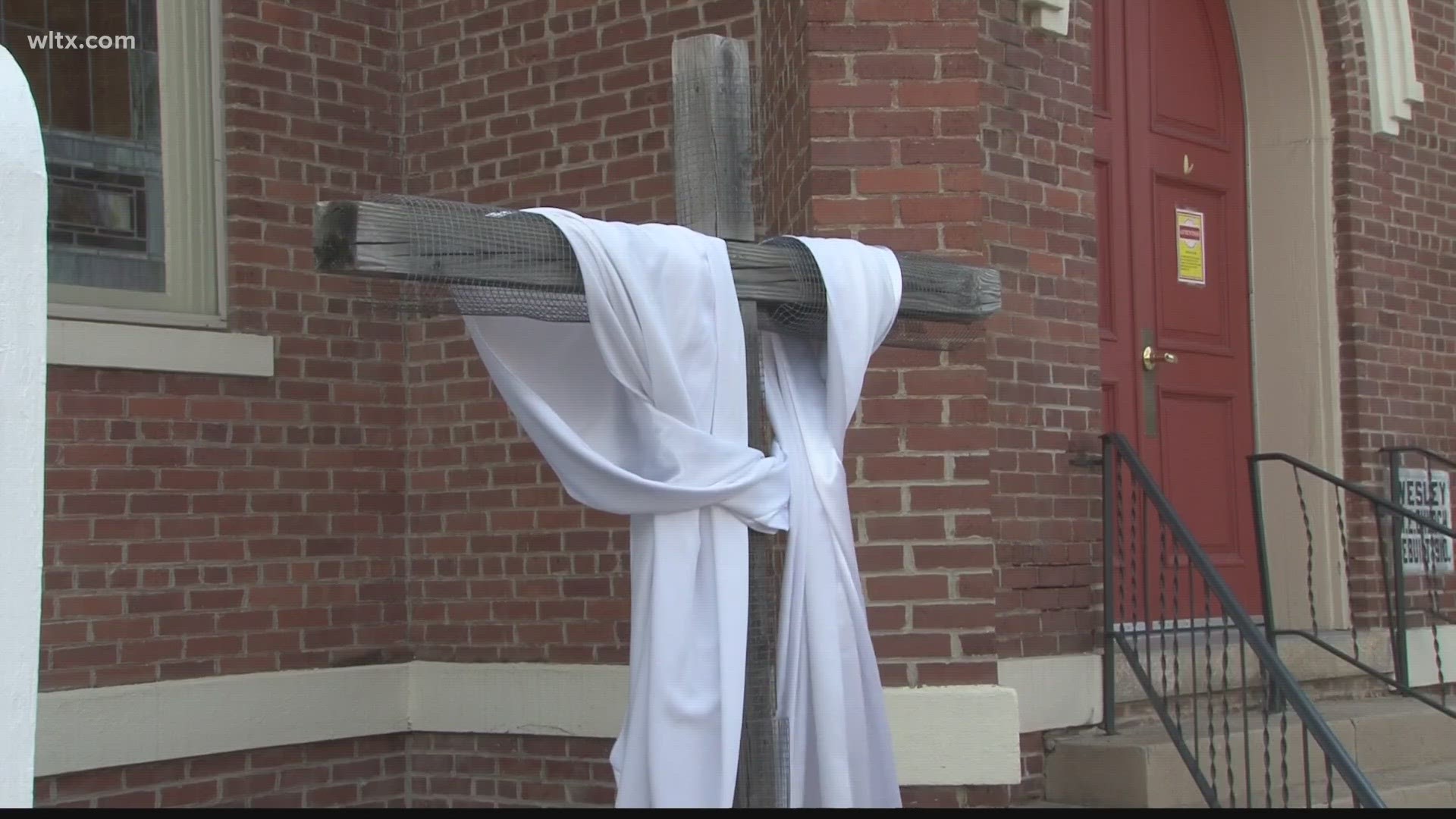COLUMBIA, S.C. — Over 100 local churches in South Carolina will soon separate from the United Methodist Church (UMC), including 24 in the Midlands.
In a news release Tuesday, the South Carolina Conference of the United Methodist Church (UMCSC) confirmed the 2023 South Carolina Annual Conference voted overwhelmingly to approve the closure of the 113 churches who voted to leave in a process described as "somber and respectful" by state church leaders. The closure doesn't mean the churches are shuttered; rather, the local congregations are simply no longer within the United Methodist denomination.
“For those who are leaving us, we bless you and send you on your way. For those who are remaining, we pray that God gives us a new will to do what God has called us to do. May it become clear, may it become important, may it move from our heads to our hearts.," said Bishop L. Jonathan Holston.
The churches will effectively be disaffiliated from the denomination as of June 30. In the Midlands, that list includes the following:
- Bethel-Oswego UMC (Sumter)
- Beulah UMC (Camden)
- Butler UMC (Saluda)
- Cattle Creek UMC (Rowesville)
- Chapin UMC (Chapin)
- Columbia Korean UMC (Columbia)
- Concord UMC (Bishopville)
- Dalzell UMC (Dalzell)
- Ebenezer UMC-Orange Circuit (North)
- Lebanon UMC (Eastover)
- Lewis Chapel UMC (Sumter)
- Limestone UMC (Orangeburg)
- McLeod Chapel UMC (Rembert)
- Mt. Horeb UMC (Lexington)
- Pond Branch UMC (Gilbert)
- Shiloh UMC (Saluda)
- Rehoboth UMC (Batesburg-Leesville)
- New Zion UMC (New Zion)
- Shiloh UMC-Turbeville (Lynchburg)
- St. John UMC (Rembert)
- St. John UMC (Sumter)
- St. Mark’s UMC-Broad Street (Sumter)
- St. Matthew UMC (Bishopville)
- Trinity UMC-New Zion (Alcolu)
Tuesday's vote is among the latest developments in an ongoing schism within the UMC. At the core of the split is disagreement over LGBTQ inclusion and ordination. While the denomination's Book of Discipline has long held that same-sex marriages and ordaining openly gay clergy are not in line with UMC beliefs, a growing number of churches in recent years have defied that declaration and pushed for a shift to more LGBTQ-inclusive practices.
The churches leaving the UMC have expressed frustration with the more LGBTQ-inclusive congregations' push. Some of those leaving have opted to join the more theologically-conservative Global Methodist Church that was formally launched in May 2022. Other churches have opted to become non-denominational or explore other options.
The differences in theological viewpoints came to a head in 2019. During the UMC's annual conference held in St. Louis that year, delegates voted 438-384 in favor of strengthening bans on LGBTQ-inclusive practices. While most U.S.-based delegates voted against the idea, others joined with delegates from the Phillippines and Africa to push it forward.
Many moderate and liberal-leaning clergy made it known after that meeting they wouldn't abide by the ban, prompting different groups to work on proposals to allow a split to happen. That split was supposed to be discussed during the General Conference in 2020 but was delayed for two consecutive years because of the COVID-19 pandemic.
Now, the schism is set to be discussed in 2024, with the General Conference happening in Charlotte. The meeting of delegates from across the globe is set to be one of the most consequential conferences in recent history for the UMC, one of the largest mainline Protestant Christian denominations.

